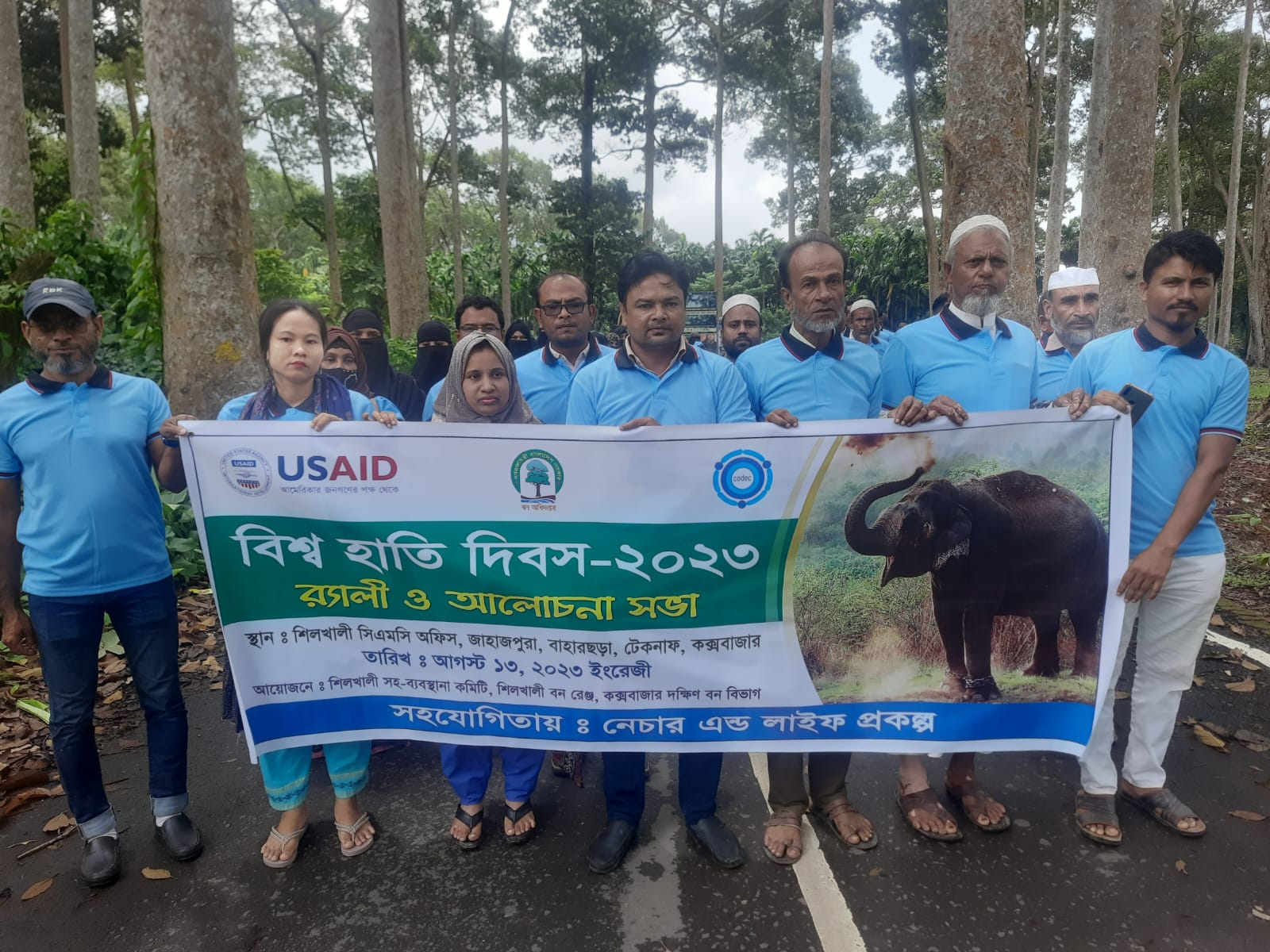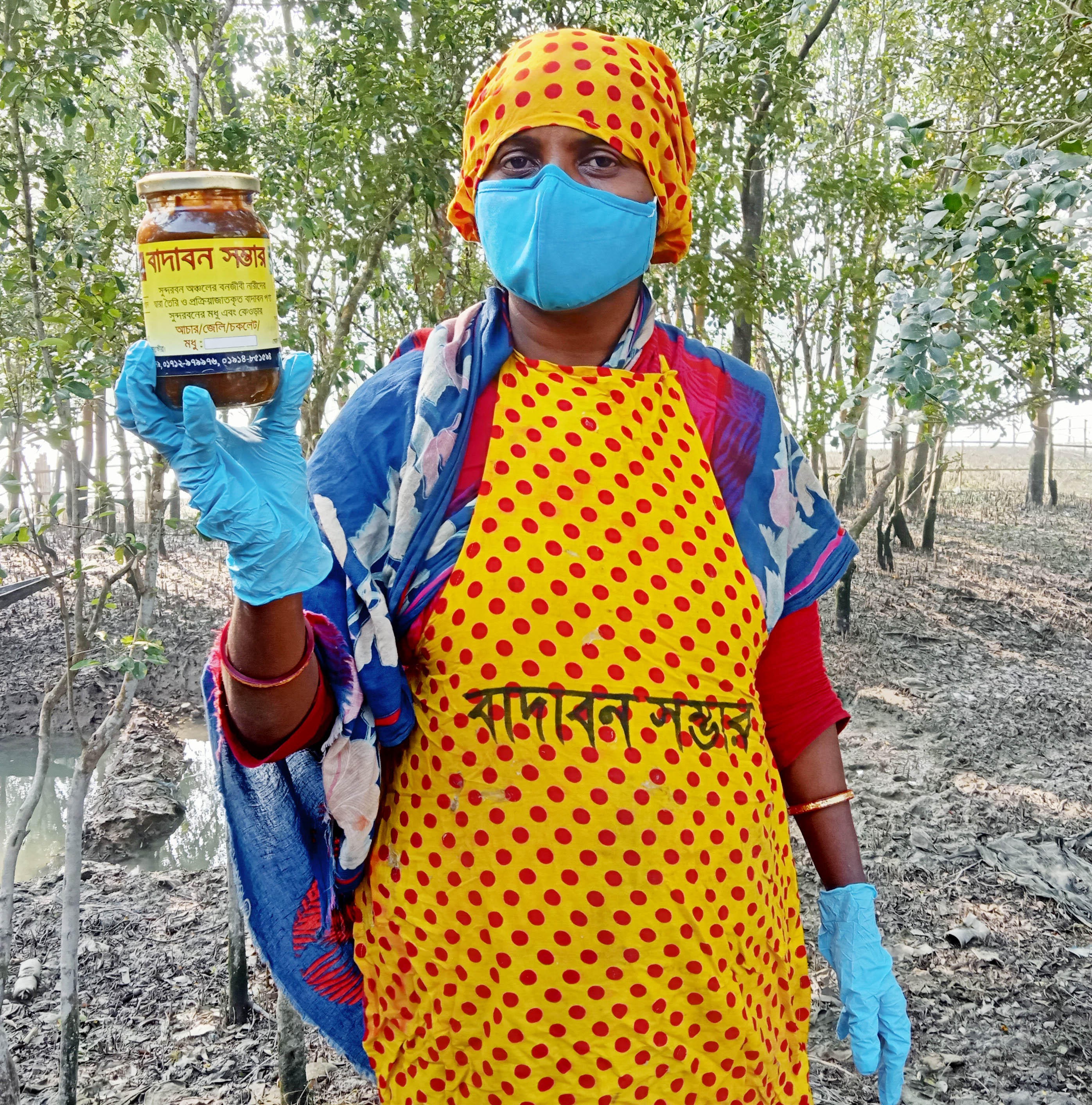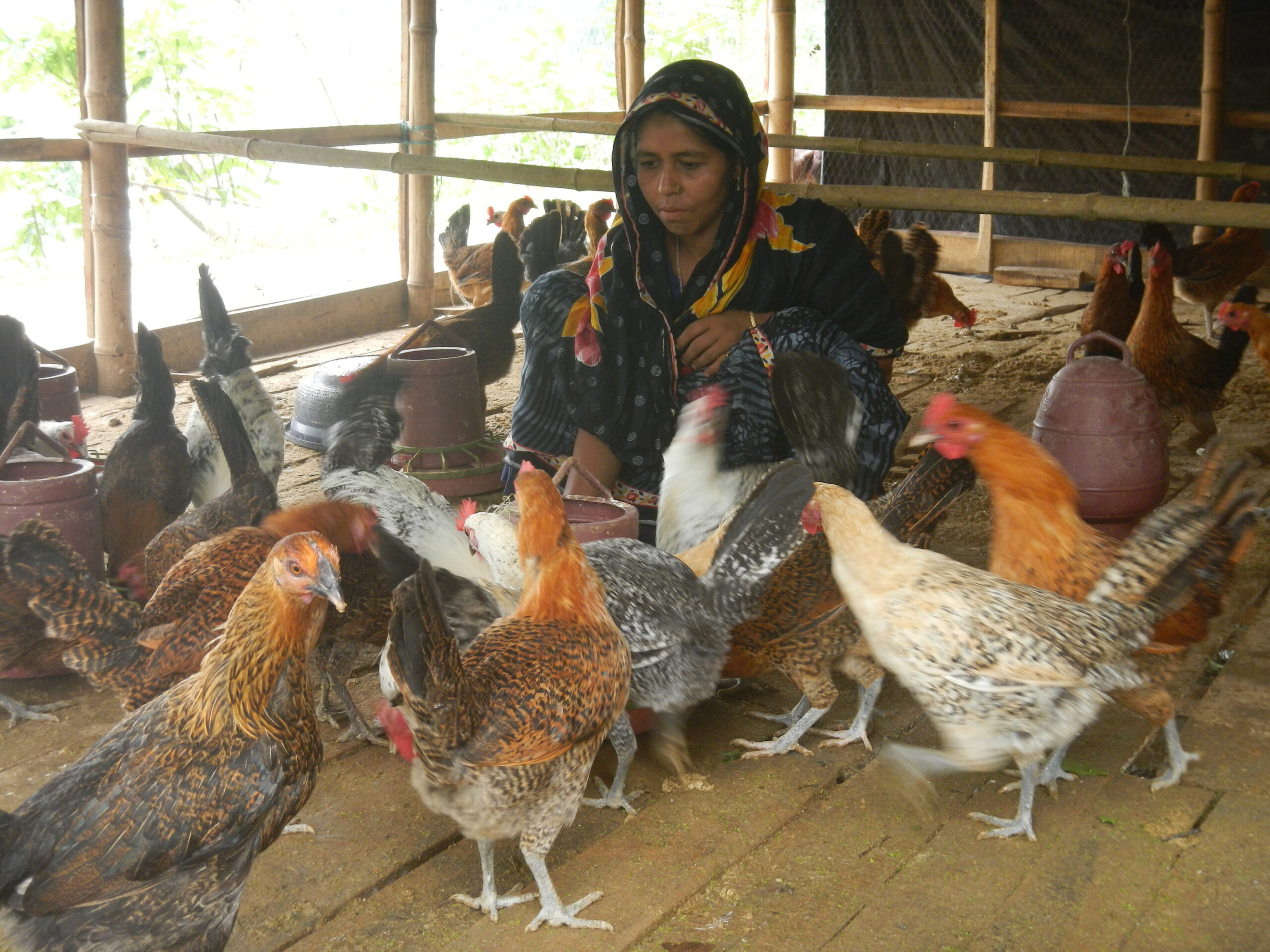PROMOTION OF RIGHTS AND ENTITLEMENT FOR DIGNITY OF FISHER-FOLK COMMUNITIES (PREDFC)
In the face of significant environmental degradation and increased distress in the host community due to the Rohingya influx in TWS landscapes, the project envisages contributing to restoration and livelihood improvement with the active engagement of local CMOs and CBOs, including three co-management committees and their allied grass-root institutions. USAID’s Local Works Bangladesh Activity finances the project, worth $US 4.0 million from May 2020–April 2025 ($US 2.0 million for the 1st phase and $US 2.0 million for the extension phase), and is being implemented by CODEC at TWS Landscape. A special focus of the project is to enable the local initiatives at Teknaf Landscape to conserve and rehabilitate natural resources. The activities will mitigate the impact of the refugee displacement on the natural environment and improve communities’ ability to cope with the sudden strains of accommodating nearly one million additional people on their land. The key objectives of the project are as follows:
Key objectives:
- Restoration of degraded ecosystems in the sanctuary emphasizes the climate-change issue
- Livelihood’s development of natural resources dependent on host community households focusing on WASH facilities and engaging the private sectors
- Strengthening the capacity of Co-management organizations and their sub-unit e.g., PFs, VCFs, CPGs and ERTs, Eco-guides, etc.
- Improved organizational and financial capacity of CODEC
Thus, the project envisages contributing to USAID / Bangladesh’s Development Objective 2 (DO2)-Sustainable Economic Growth Fostered and Development Objective 4 (DO4) (Strengthened Resilience to Climate Change and Other Shocks efforts).

Restoration of degraded natural environment and well-being of host communities in the Teknaf Wildlife Sanctuary (TWS) landscapes.

Empower coastal communities to nurture healthy ecosystems and a climate-just economy in southwest and south-east Bangladesh through feminist climate movements, ecosystem restoration, and ethical business development.
PROMOTION OF RIGHTS AND ENTITLEMENT FOR DIGNITY OF FISHER-FOLK COMMUNITIES (PREDFC)
CODEC’s BID4CJ project, spanning Khulna, Satkhira, Cox’s Bazar aspires to empower coastal communities in south-west and south-east Bangladesh. Through feminist climate movements, ecosystem restoration, and the development of ethical businesses, BID4CJ envisions fostering a climate-just economy and nurturing healthy ecosystems. The project, initiated in January 2023, focuses on enhancing the decision-making power of coastal communities, particularly women and marginalized individuals by facilitating climate finance access, raising grievances to duty bearers for right violation, and policy influence for 10,000 marginalized individuals. It emphasizes stewardship in ecosystem management and economic development and aims to ensure that revitalized ecosystems equitably benefit the most marginalized members of the community as well. By fostering climate and gender-just economic development, BID4CJ envisions positive outcomes for both coastal communities and green businesses in the particular region.
This Project is actively involved in establishing 17 types of green businesses to foster a sustainable and eco-friendly future. The project encompasses a diverse range of initiatives, including seaweed cultivation, salt cultivation, dry fish processing, aqua-light production, bee keeping, moringa product development, black soldier fly (BSF) farming, shrimp shell utilization, Keora pickle production, vermicompost creation, bamboo and cane products, handicrafts, nursery management, honey production, sunflower oil production, watermelon cultivation, and eco-tourism. Through these ventures, BID4CJ aims to implement sustainable strategies such as waste reduction, energy conservation, and the use of renewable resources, contributing to a more resilient and robust environmentally conscious economic framework.
Climate Change Adaptation Project
The project, funded by the Stromme Foundation and initiated in November 2023, aims to foster resilience to climate change and promote socio-economic empowerment among 3085 of the most vulnerable households from Chitalmari Upazila of Bagerhat District by the end of 2028.
The project focuses on establishing a sustainable safe water management and accessible system with hygiene practices in the targeted community. This includes ensuring that a percentage of community members have access to pure drinking water and enhancing the capacity of households in water management and hygiene practices, with a target of 60% of households.
On the other hand, the project aims to improve sustainable livelihoods and food security among target households through green income-generating activities (IGAs) and adaptation to climate change. This involves enhancing the skills and confidence of targeted households, facilitating the adaptation of households to environmental and climate change resilience technology, and improving value-chain activities.
The project also focuses on enhancing the resilience and safety of children and communities through the effective implementation of child-centric and community-led disaster risk reduction (DRR) plans and protocols. This includes strengthening institutional capacity on child-centric and community-led DRR plans and enhancing DRR knowledge and skills among community members.
Overall, the project aims to address the intersecting challenges of climate change, socio-economic vulnerability, and disaster risk by implementing targeted interventions that enhance access to safe water, promote sustainable livelihoods, and build resilience among vulnerable households and communities. Through a comprehensive approach that integrates water management, livelihood enhancement, and DRR measures, the project seeks to empower beneficiaries and contribute to their long-term well-being and resilience in the face of climate-related challenges.

